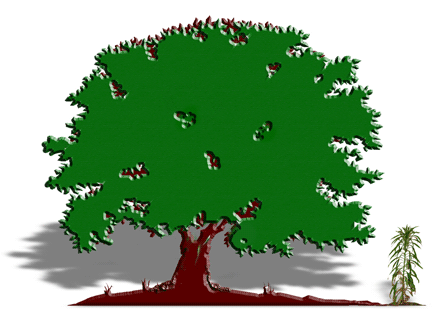It makes our blood boil. It really does! The barrage of Get Rich Quick messages permeating our culture. They hit mailboxes, inboxes, magazines, bookstores, newspapers, television and even our telephones as “friends” call urging us to try new easy money-making ideas.
Every year, millions of people plunk down hundreds of millions of dollars to find a simple way to become rich. Unfortunately, these schemes do more to increase our poverty rather than our wealth.
Fast Money — Quickly Gone It’s almost a parable. A lottery ticket cashed in for millions. The press conference, the happy faces, the jumbo check — and they live happily ever after. NOT. Few can handle such a windfall; most end up worse financially after “making it big.” Here are three unfortunate examples we found by “googling” lottery winners bankrupt.
New Jersey resident Evelyn Adams won $5.4 million from two lottery windfalls in 1985 and 1986. Today, broke, she lives in a trailer home.
In 1993, Janite Lee from Missouri won $18 million. By 2001, after donating some of her money to political and community organizations, all the while living large, she filed for bankruptcy.
William Post won $16.2 million in Pennsylvania’s lottery in 1988. After several law suits, disagreements with friends and siblings, and some foolish investments, his winnings were completely consumed; he lived his last days on Social Security.
A 1999 survey by the Consumer Federation of America revealed that half of lower income families thought winning the lottery was the only way for them to save for retirement. Many people see the lottery as the answer to their financial problems — we view it as the road to ruin.
* * * * * * * *
It takes 20 years to make an overnight success.
Eddie Cantor
* * * * * * * *
Flipping Houses — Flopping Finances In his best-selling book, Rich Dad, Poor Dad, Robert Kiyosaki encourages readers to cast off the idea that you can make your fortune while working for someone else — the real money is in owning your own business. He made his money through real estate and encourages others to do the same. A videotaped speech he delivered to a group of aspiring authors turned our stomachs. He said, “I’m not an author, I’m an entrepreneur . . . I wrote Rich Dad to sell the game I developed (it sells for over $200). I am a rich man and I like being a rich man. I don’t live below my means, and the standard financial advice of working hard, living below your means, saving money and investing for the long term is stupid!”
Many people have taken Kiyosaki’s and other get-rich-quick proponents’ advice, by investing in real estate, many in neighborhoods near our home. We saw it coming. Those who borrowed money to flip houses did well during the buying frenzy in 2003 through 2005 but now they’re losing homes to foreclosure at a rate 40 percent higher than last year. Such financial failures hurt us all. Greed and haste are major enemies to creating enduring wealth. Rich Dad’s advice can be the fast track to the poor house . . . or something worse.
Compromising Character — Complex Challenges Focusing on making a fast buck can cause you to compromise your convictions. A reputation as a person of honesty and integrity is irreplaceable. Needing to move fast to consummate a deal, investors are often lured to take short cuts. Owen is a mail clerk at our local post office. A friend of his drives fancy cars and appears to live the “good life.” This friend planned to buy houses in foreclosure, rent them back to the owners, then sell them at a profit. Owen, dissatisfied with his meager postal worker’s, wages got involved in this scheme. Two years later, he’s embroiled in a lawsuit to get back his money from this unscrupulous “friend.” Apparently the friend’s only goal was to feather his own nest at the expense of Owen and those on the brink of financial disaster. The bitterness and anger Owen is experiencing wasn’t worth the potential gain of a fast buck.
* * * * * * * *
We’ve learned how to make a living, but not a life.
George Carlin
* * * * * * * *
The 19th century novelist Josiah Gilbert Holland wrote: “There is no royal road to anything, one thing at a time, all things in succession. That which grows fast, withers as rapidly. That which grows slowly endures.”
So how do you grow your fortune slowly, more like a stately oak tree than a fast-growing weed?
1) Be content Early in our frugal journey we gazed longingly at some of our friends’ apparently easy, affluent lives. This coveting caused disenchantment with what we did have. But we were seeing what Texans call Big Hat, No Cattle. In other words, these friends’ external appearances misrepresented their financial status. We learned this again and again as they sought our financial advice. They’d drive up in a leased Porsche or other sporty car, but reviewing their monthly expenses versus their monthly income shattered the façade. Stop looking at others and be grateful and content where you are right now.
2) Manage it Create a system (a budget) to manage your expenses—no matter how much you earn. Controlling spending will allow you to save more. Plus managing well what you have now, will prepare you to manage greater wealth later.
3) Save it Develop the discipline of saving a fixed percentage (five to ten percent) of your income. It may seem daunting at first, but after a short time, you’ll barely miss the money you’ve set aside. And living on 90 percent or less of your take-home pay will become normal.
4) Avoid it Paying finance charges is a sure-fire way to give your wealth away. Avoiding debt with a smile and looking for other options will guarantee your financial success.
5) Do you Need it? You hear it from your kids, “I really NEED this!” But we adults can have the same weakness — it could be cars, houses, clothes, shoes, tools or a new electronic gizmo. No matter what, being able to clearly evaluate the difference between Needs, Wants and Dreams is critical to making wise money decisions. Next time the urge rises up within you to buy a new thing-a-ma-bob, write it on a piece of paper and let it sit for a month. It will test your desire and give you a chance to be true to your real convictions.
* * * * * * * *
The dictionary is the only place where success comes before work.
Mark Twain
* * * * * * * *
6) Work it Rather than focusing on what other people do to “make it rich,” become excellent in what you do. If you’re working at a job you just can’t stand, follow your passions, go back to school and start doing something you love. Nothing is more rewarding than working at a job that you love. Your passion will spill over to others and nothing will hinder your success.
Weeds grow fast and are quickly burned up by the sun; oak trees grow slowly, but are strong and remain for decades. In the early 1900s, comedian and singer Eddie Cantor proved that over a lifetime of diligence and hard work, a fortune can be made . . . and lost . . . and then made again. He lost his millions in the 1929 stock market crash, but with dogged persistence and an excellent work ethic, he rebuilt his reputation and fortune. Be an oak tree, grow slowly and strong —
with no regrets.

